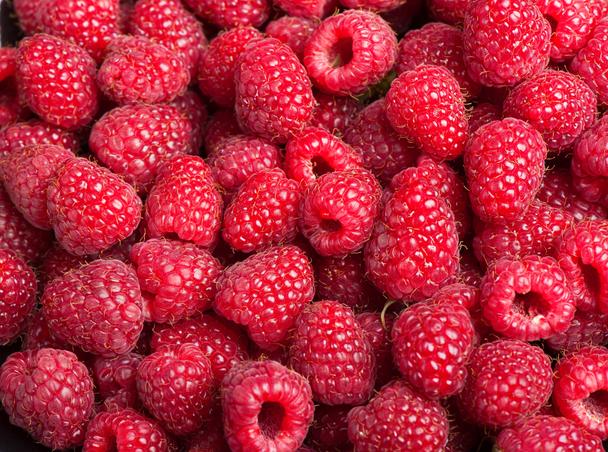Raspberries not only taste good, they are also very healthy. The sweet and sour berry contains many vitamins. Here you can find out more about the nutritional values and nutrients of raspberries.
It was first cultivated in the monastery gardens in the Middle Ages. Even then, it was not only considered a sweet and sour fruit, but above all a medicinal plant. Today, the raspberry is even said to have an anti-carcinogenic effect – it is said to be able to help prevent cancer.
Raspberries are rich in vitamins, trace elements and phytochemicals that strengthen the body’s defense mechanisms and immune system. Their nutritional values also make them a healthy treat.

Raspberries: nutritional values at a glance
For 100 grams of raspberries:
Calories: 34 calories
Protein: 1g
Fat: 0.3g
Carbohydrates: 5g
Fiber: 7g
With just 34 calories per 100 grams of the fruit, raspberries are a very figure-conscious snack. In addition, the sugar content (4.8 grams) is low because of the high fruit acidity of raspberries. Therefore, they are also suitable for diabetics.
However, you should not eat more than 200 grams of fresh raspberries a day. Because a large amount of the fruit can lead to diarrhea.
Nutrients in raspberries: vitamins, minerals, trace elements
Raspberries are rightly considered fruits with the health bonus. They have a range of different vitamins, minerals and secondary plant substances. Vitamin C in particular is plentiful. On the other hand, the raspberry is hardly suitable as a supplier of minerals.
vitamins:
Vitamin C: 150 grams of raspberries a day cover 38 percent of the daily vitamin C requirement.
Provitamin A: Raspberries contain a lot of beta-carotene, a vegetable pigment that is one of the provitamins A. Provitamins A are first converted to vitamin A in the body.
B vitamins: They ensure our general well-being and our vitality because they are involved in all phases and forms of energy production in the metabolism.
Minerals and trace elements:
Potassium (100 grams cover 4.3 percent of the daily requirement): Potassium is important for good heart, nerve and muscle function.
Phosphorus (100 grams cover 6.4 percent of the daily requirement): Phosphorus is involved in energy production.
Calcium (100 grams cover 4 percent of the daily requirement): Calcium is an important component of our bones and teeth.
Magnesium (100 grams cover 8.6 percent of the daily requirement): Healthy bones and teeth also need magnesium.
Iron (100 grams cover 8 percent of the daily requirement): Iron is essential for blood purification and formation. Together with the high content of vitamin C in raspberries, the iron can be utilized particularly well.

These additional nutrients are contained in raspberries
Also included:
Tannins: Tannins help the body break down harmful substances.
Fruit acids: Citric acid in particular is contained in raspberries, which in combination with potassium has a draining effect and can therefore help with urinary tract infections.
Secondary plant substances: These mainly include flavonoids, e.g. quercetin, anthocyanins and camphor oil. They protect against free radicals, which, among other things, can promote cancer.
